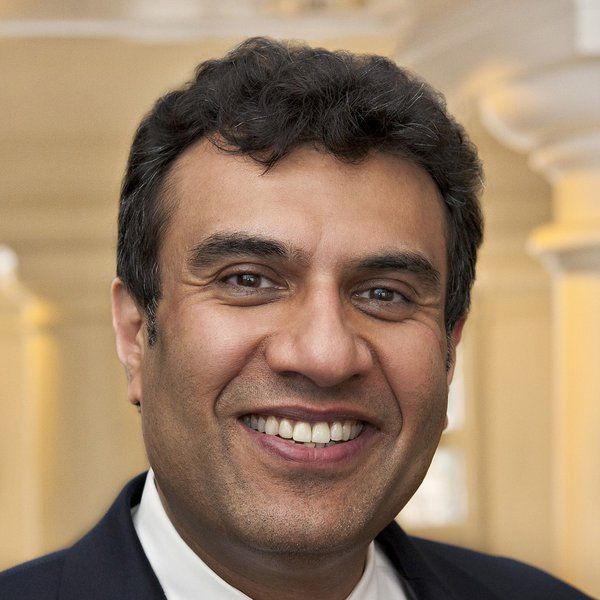Article
Janssen Launches CHIEF-HF Wearable Device Trial
Author(s):
The adult heart failure study is the first of its kind: a completely decentralized, indication-seeking clinical trial.

Paul Burton, MD, PhD
This morning at the American Heart Association (AHA) 2019 Scientific Sessions in Philadelphia, Janssen Pharmaceutical Companies announced the launch of the Canagliflozin: Impact on Health Status, Quality of Life and Functional Status in Heart Failure (CHIEF-HF) trial.
The randomized, 1900-adult patient trial will be the first completely decentralized, mobile, indication-seeking clinical study, and will involve a population of patients with varying subtypes of heart failure, with or without type 2 diabetes.
In an interview with MD Magazine® during AHA, Paul Burton, MD, PhD, vice president of Medical Affairs and Internal Medicine for Janssen Scientific Affairs, explained the study’s intent and creation—and what the implications of a completely decentralized clinical trial means for the future of cardiovascular care.
MD Mag: What are the details of the new CHIEF-HF study?
Burton: CHIEF-HF is testing whether canagliflozin (Invokana)—which we recently got approval for diabetic kidney disease based on the results of the CREDENCE study—we're looking to see whether that medicine can improve quality of life in patients with heart failure.
There are a few novel and really exciting things about this study. It's really the world's first decentralized, digitally-driven study that's looking for new indication for a medicine.
We're not using any sites—we're going to enroll patients through big healthcare systems. They'll do all the study-related activities on an app on a smartphone, and we'll be able to use a wearable device to look at progression. It's a very novel way of doing clinical research. It's quick, it's highly efficient. So that's huge.
We're looking at a patient population of heart failure, both preserved ejection fraction heart failure and reduced ejection fraction heart failure. And we're also testing Invokana in diabetics and non-diabetics. So, it's a very broad, high unmet-need patient population. And we're bringing a very innovative clinical trial design to see if we can show the benefit of Invokana.
MD Mag: We seem to be reaching a phase where it's becoming more of the norm to embrace wearable device data, and integrating that into practice. How much consideration is being put into the benefit of that in the configuration of this trial and any follow-up assessments?
Burton: I can say by 2025, digital medicine and wearable devices, I think will really be a cornerstone of mainstream diagnosis for patients, following them to care, and even in full-blown clinical research.
We recognize that at Janssen. We want to be part of that cutting edge, as we always are. We bring transformational innovation to patients around the world, in terms of medicine and devices. And we recognize now that we have to be there, doing that with digital medicine, with wearable technology— both to test our medicines and our devices, and to also ultimately see if we can change patient behavior, patient engagement. If you can do that, that will move the needle in healthcare.
MD Mag: The Apple Heart data is an entirely different discussion relative to this trial's makeup. But there does seem to be a bit of reticence from some cardiologists to embrace this wearable data until it's really proven itself. Are there any hurdles or challenges you have to address, and potential pitfalls with wearable device data?
Burton: It's a great question. At the ACC meeting, we actually announced that we were doing a collaboration with Apple for a study called HEARTLINE. And HEARTLINE is intended to be a study in over 65-year-old people with atrial fibrillation. And we're going to randomize 150,000 of them to the Apple Watch and an app that will engage people to find care if they get diagnosed with AFib.
And the key endpoint in that study is the risk of death or stroke. And I think we need that kind of really robust, rigorously done clinical research to be able to reassure physicians that if you use wearable technology, you use apps to engage people, to keep them coming back to check and help follow their care, does that really reduce the risk of important clinical endpoints like death and stroke?
I think the world is skeptical. Like I said, this study is going to be really rigorously tested. What CHIEF-HF is doing is saying, "Okay, look, we know that everybody has smartphones. Can you now enroll people through large healthcare systems? Can you help them do their study-related activities on a smartphone? Can you use an app to engage them? Can you take advantage of the well-validated wearable devices, that we all use, that accurately count steps? And can you pull that into clinical trial design?"
So, I think there's 2 parts. There's one part which is, can you use wearables and apps—and if patients do that, will they engage and change their health behavior? And can that result in a proven clinical outcome? That part is HEARTLINE.
And then the other part, which CHIEF-HF is doing, is asking, can you take advantage of the validated technology today, and change the way that we do clinical research? That way we can get more and more medicines through development. It could bring more and more transformational medicines, which is our mission at J&J.
MD Mag: The involvement of daily step counts, stairs climbed, overall physical activity—it seems like we are at a place with this drug class where we want to start considering the more intricate day-to-day details of the patients. Is that something that's going to reflect in not just in this data, but any follow ups and further assessments of canagliflozin?
Burton: Yeah, absolutely. I mean, we have strong data from the development of Invokana, that it does improve heart failure, hospitalization, and clinical outcomes. And we will be looking at that as part of the study. But I think what physicians and patients want from a therapy for heart failure is not only that—but they want to feel better, and they want to be able to do more.
So, they want an improved quality of life, and they want improved functional status. So that's really what we're able to do now. We can do a well-validated questionnaire called the KCCQ, which looks at heart failure quality of life. And then of course, as you say, there's step counts, stairs climbed, all of that kind of stuff.
We can really determine how people function better—are they getting out, going to the park, are they going to see their friends? So, I really think it will get the crux of what patients, families, and physicians want to know.
MD Mag: In terms of potential dates for findings or presentation, are there any expectations you could share at this time?
Burton: So, it's a 2000-patient study. Our aim is to roll it very, very quickly—far faster than we would using our standard clinical trial design. My aspiration, my dream would be for us to be presenting data at a major cardiovascular meeting in late 2020, so the second half of next year.

























